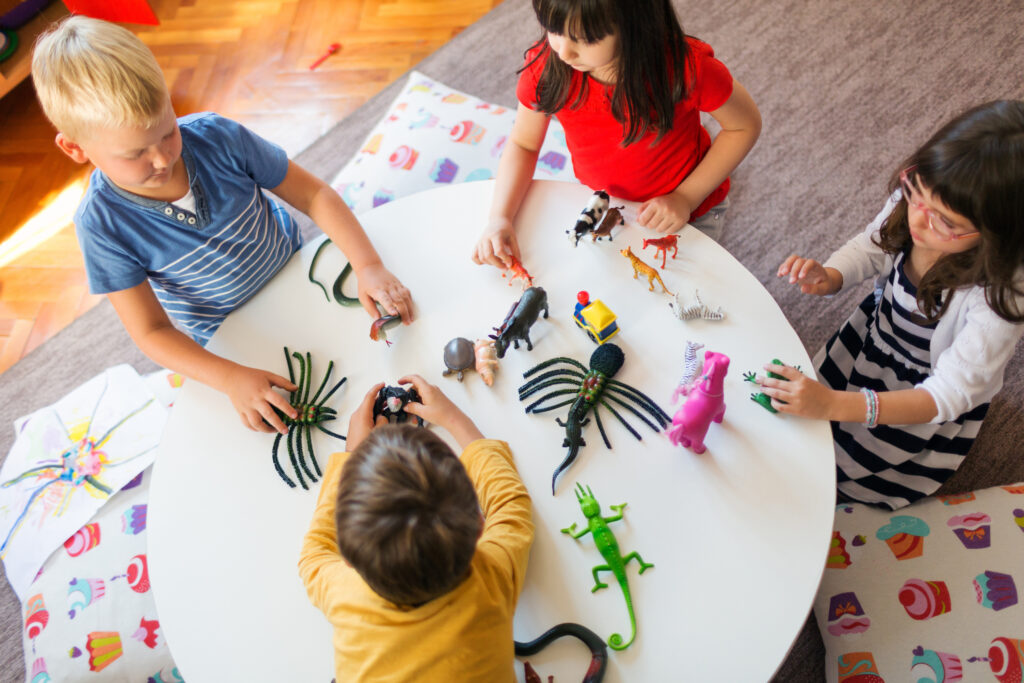What is sensory processing disorder?
Sensory processing is an important neurological process that allows us to see, touch, smell, and translate information via these senses. So it’s fundamental to how we all interact with the world around us.
While many of us take these senses for granted, a percentage of the population have difficulties processing this information. This can create unique challenges for them and those close to them.
Here we take a look at what is sensory processing disorder, what are signs of sensory issues, and what to look out for in younger children.
Sensory Processing Disorder
Sensory processing disorder (SPD), or sensory processing issues, is when the body has difficulty in transmitting information via our senses. It’s relatively common with anywhere between 5 and 16% of children thought to be affected.
Touching, seeing, hearing, tasting and smelling can be muted, amplified or even a mixture of both. And it’s not just these five senses that can be affected – movement and balance might also be affected.
According to leading research in the field, there are 3 components to sensory processing disorder:
1. Sensory modulation disorder
Sensory modulation is when someone is either:
- Overly responsive to sensory input – such as responding quicker, or for longer periods to stimuli.
- Under responsive to sensory stimulation – meaning there’s a delay in responding to certain stimuli, or even a complete unawareness of the stimuli in the first place.
- Craving certain sensory stimuli – but the results do not satisfy the initial craving.

2. Sensory discrimination disorder
Sensory discrimination is when someone has difficulty in interpreting or interacting with aspects or qualities of objects, places or people. This could show itself through difficulties in interpreting sensory information via:
- Any of the body’s five primary senses,
- Movement or balance (vestibular or proprioceptive senses).
- Interoception – where the body fails to recognise stimuli from an internal organ. (For example, your bladder failing to inform you it’s full).
3. Sensory-based motor disorders
Sensory based motor disorders are when the body experiences difficulties in balancing, coordinating, or performing certain motor skills. The two main types of sensory-based motor disorders are:
- Postural disorder – affecting the body’s stability and ability to perform certain movements.
- Dyspraxia – affecting the ability to learn and execute complex movements or skills.
What are signs of sensory issues?

Sensory issues affect each child in their own way. One child’s experience with sensory processing disorder will be different from another’s.
It’s important to remember that just because your child shows some of the signs it doesn’t mean they have a disorder or sensory issue. If you’re worried, speak to a child health professional for advice.
Some of the signs sensory issues include:
- A state of constant motion or dizziness.
- Oversensitivity to smells, odours.
- Blocking their ears for certain sounds like vacuum cleaners.
- Sensitivity to certain fabrics and clothes, only choosing to wear softer fabrics.
- Refusal to eat certain foods because of the texture.
- Difficulty relaxing after periods of high physical or emotional activity.
- Poor balance, or odd posture.
Causes of sensory processing disorder
The potential causes of sensory processing disorder are still unknown. Researchers are looking closely into the relationship between those with developmental disorders such as autism spectrum disorder (ASD), attention deficit hyperactivity disorder (ADHD), and children with SPD for clues to its causes.
How to have your child assessed and diagnosed
Deciding to have your child assessed is an important step for you and your family. Visiting a qualified occupational therapist with experience in early intervention for children and receiving a professional diagnosis is an excellent way of getting to the bottom of your child’s habits and behaviours. This can be a turning point as it gives you peace of mind knowing they have the right support along the way.
When you’re looking for an assessment, it’s essential to get the right advice from a qualified therapist. If you’re interested about what services are available, Early Start Australia’s postcode search tool allows you to find an allied health professional near to you.
What kind of professional help is available to your child?
As our understanding grows of the need to support children and families living with SPD, it’s easier than ever to find professional help for your child. Across Australia, there are multiple targeted support options available including:
- Occupational Therapists for one-on-one meetings and assessments.
- Holidays programmes designed with your child’s needs in mind.
- NDIS funding.
- Physiotherapy.
- Speech and language pathology.
Here at Early Start Australia, with a multi-disciplinary team of psychologists, occupational therapists, speech pathologists and early intervention specialists, we work collaboratively with you to understand your child how we can help them with the right strategies and tailored therapies to ensure your child is given the tools to manage and overcome the challenges of SPD.
How can you, as a parent or caregiver, provide help for your child outside of this professional assistance?
Caring for someone with SPD can be both a challenging, and wonderfully rewarding experience. It’s good to know that the best way to provide care outside the professional arena is with close family, carers and friends.
Here are some useful tips to keep your child as comfortable as possible.
1. Find a sensory balance (sensory integration)
Fill your days with as many balancing, calming activities as possible. Immersing your child (and yourself) in fun-filled activities that let their senses explore new and sometimes challenging sensory information is so important. Swimming, jumping, quiet time, painting or any activity that satisfies your child’s sensory needs is a go!
2. Stay aware of your senses
It can be easy to feel overwhelmed and forget your own sensory needs – especially when you are focussed on caring for someone with SPD. Make sure you remain in touch with your feelings and needs. The more in touch with yourself you are, the more calm and relaxed those around you will feel.
3. Introduce art into the playroom
Art helps children develop their sensory toolkit, expression, and creativity. Including artistic activities in daily life can help your child work through challenges they may be facing and allow them a chance to express their feelings creatively.
4. Make arrangements ahead of time
If you’re planning on travelling, whether it’s a road trip or heading to the beach, make sure you have the right toys and backup plan in place in case things don’t go as anticipated. Here are some tips on taking your sensory sensitive child to the beach.
What is the outlook for kids who have sensory issues?
While there’s no magic cure for sensory processing disorder, there is good news. As research continues, we’re beginning to understand more and more about the causes, symptoms and coping mechanisms available.
As they grow older children can learn and adopt strategies to better manage and live with their SPD. This includes getting coordinated support with specialised occupational therapists to develop a personalised plan to help overcome challenges in everyday life.
Get a professional opinion and qualified assessment
If you’re wondering about sensory issues, Early Start Australia has a team of professional child behaviour therapists and occupational therapists who can help. Like you, we want to give your child every opportunity for a happy and healthy life. You can contact us and see what services are available in your local area, or we can provide support via telehealth.









